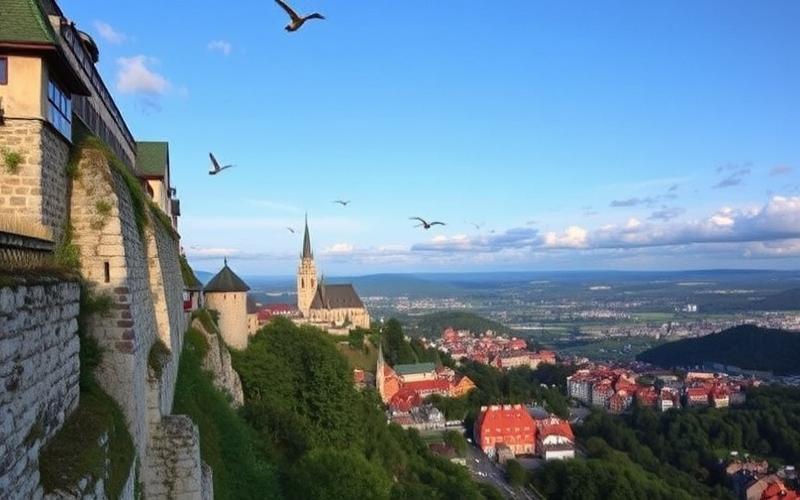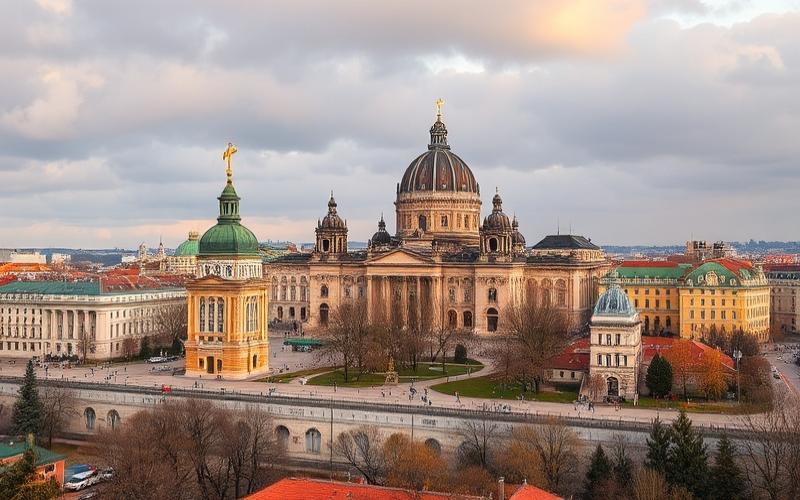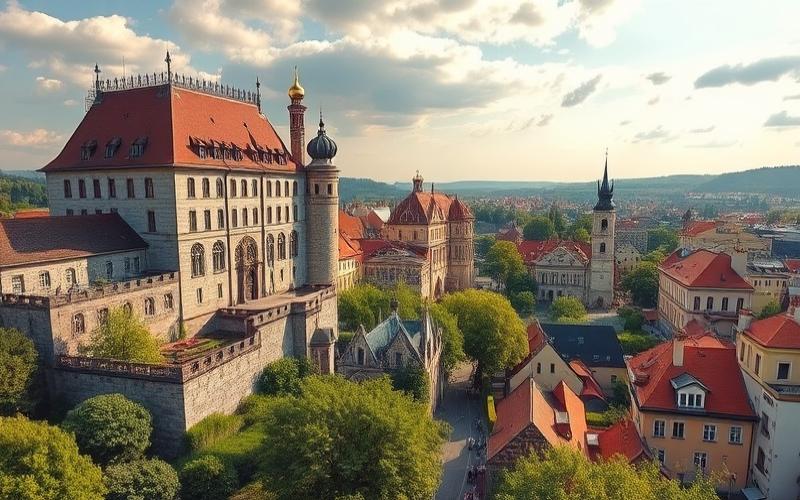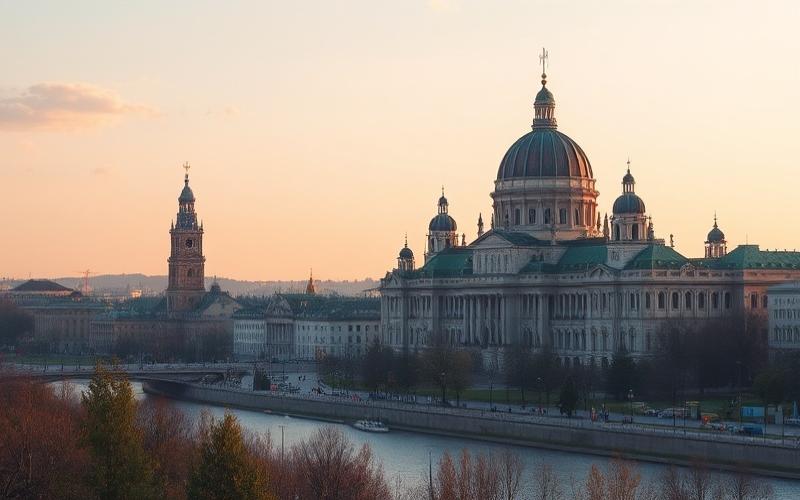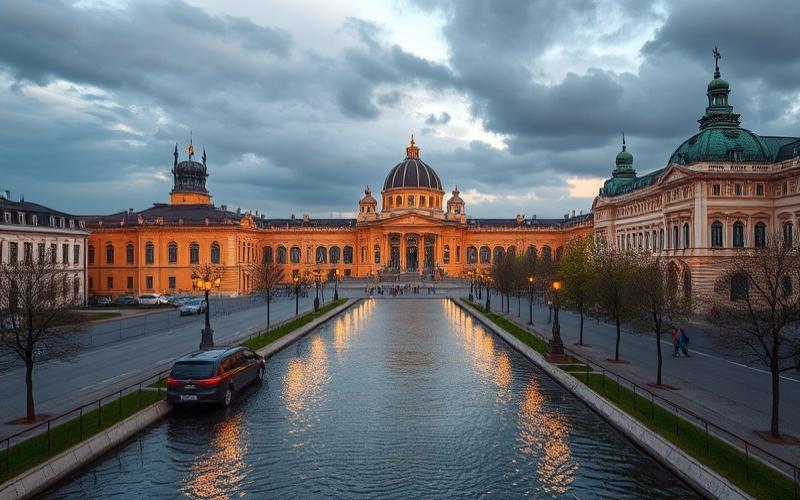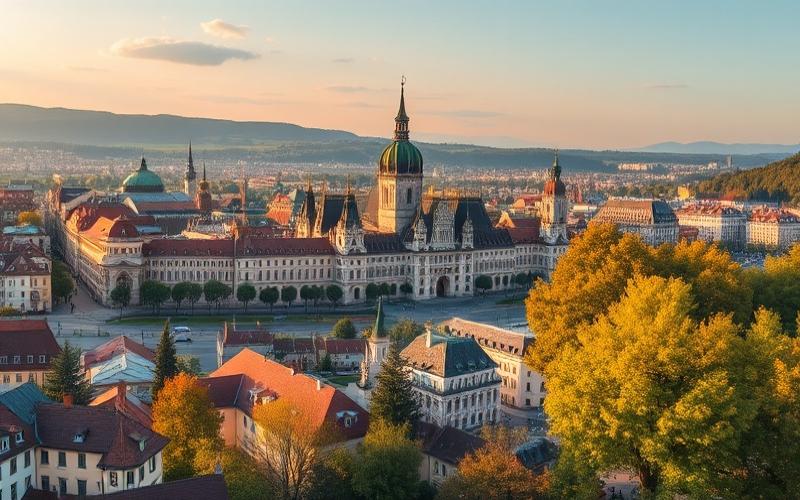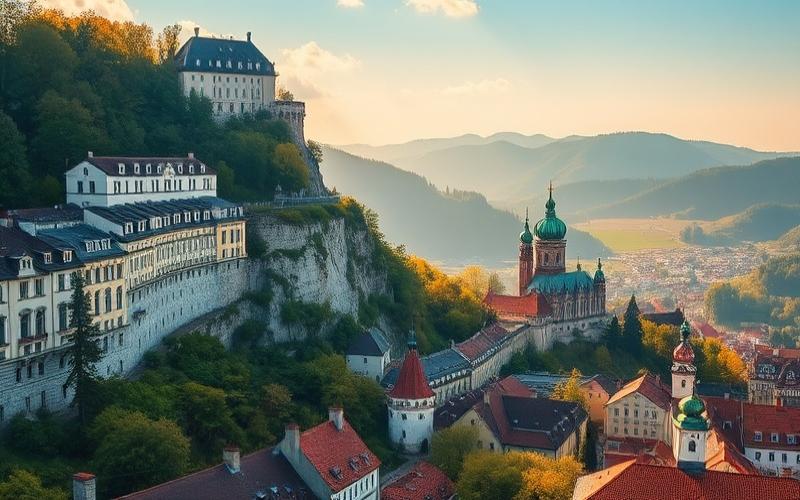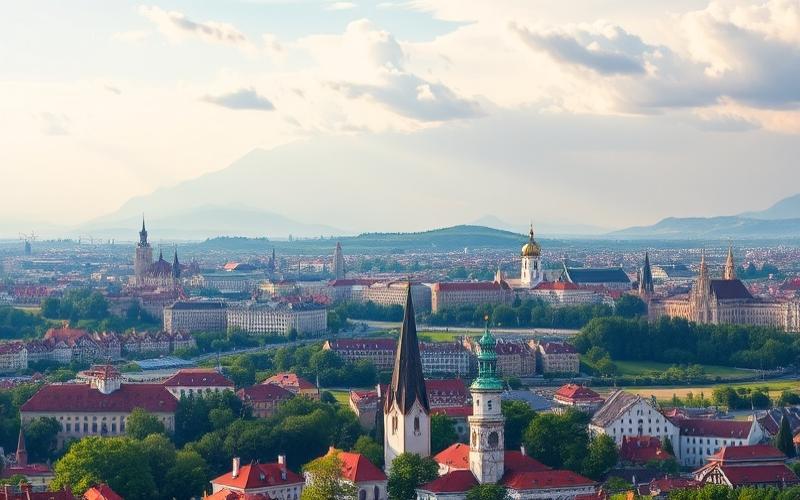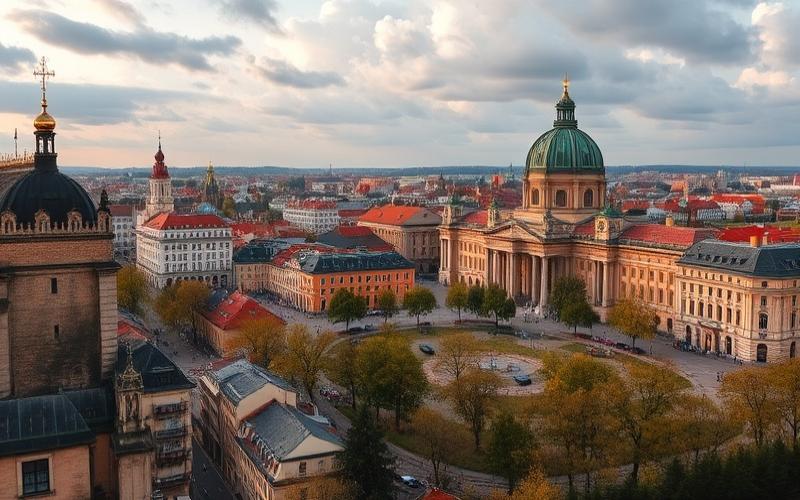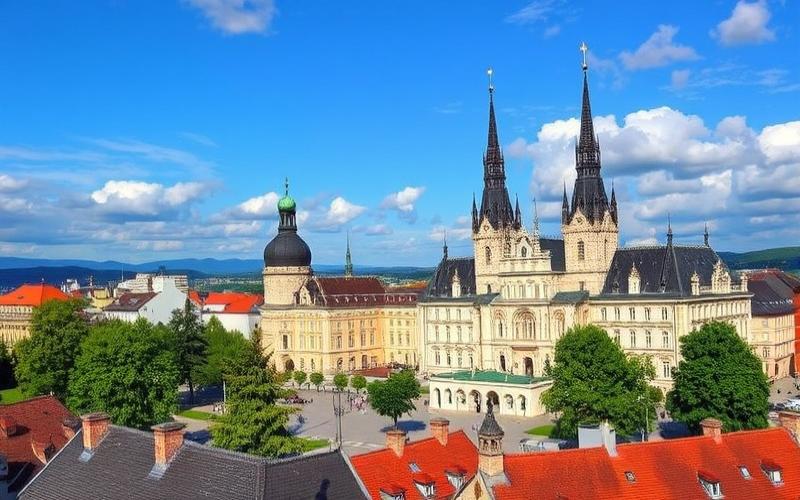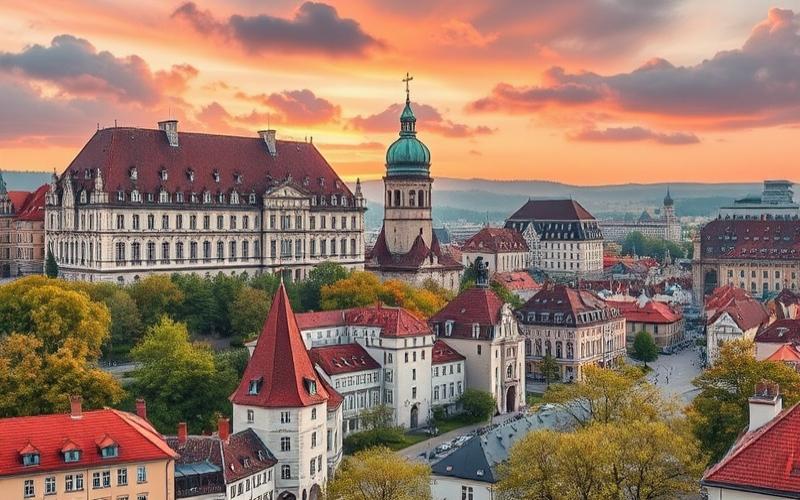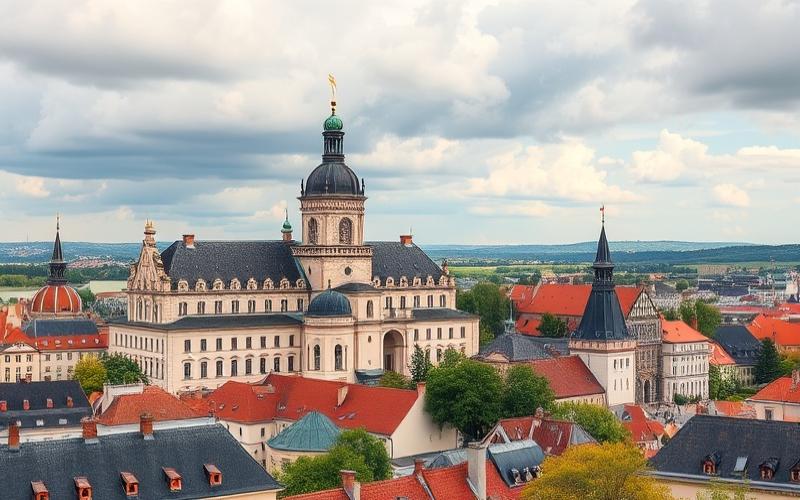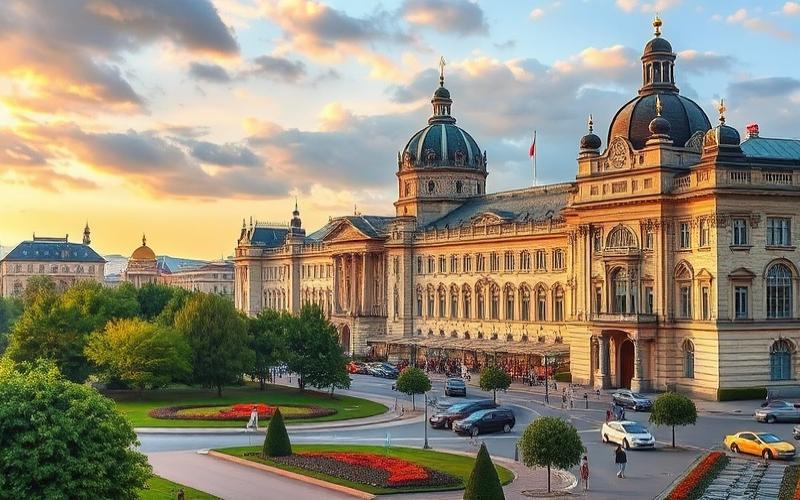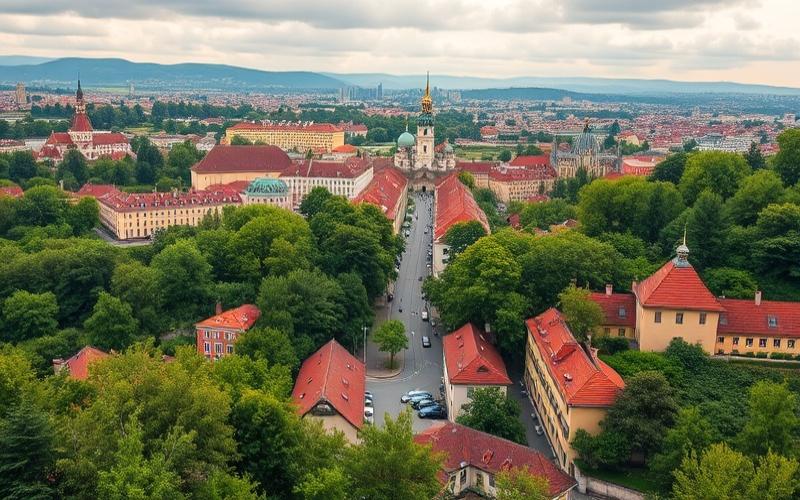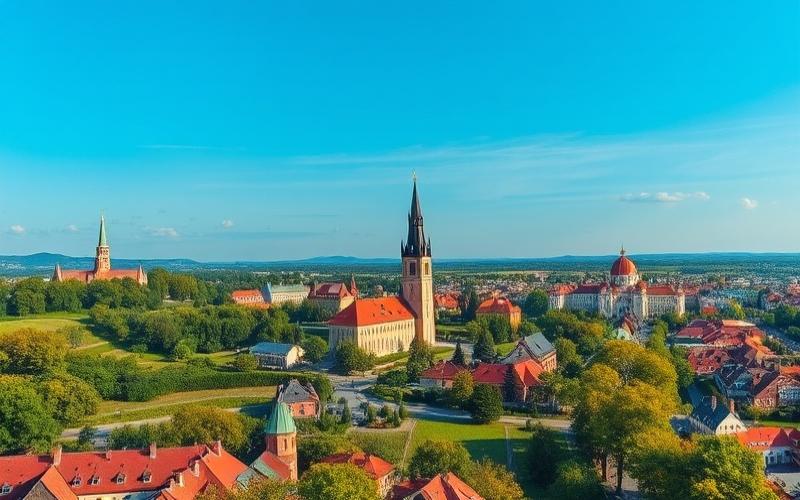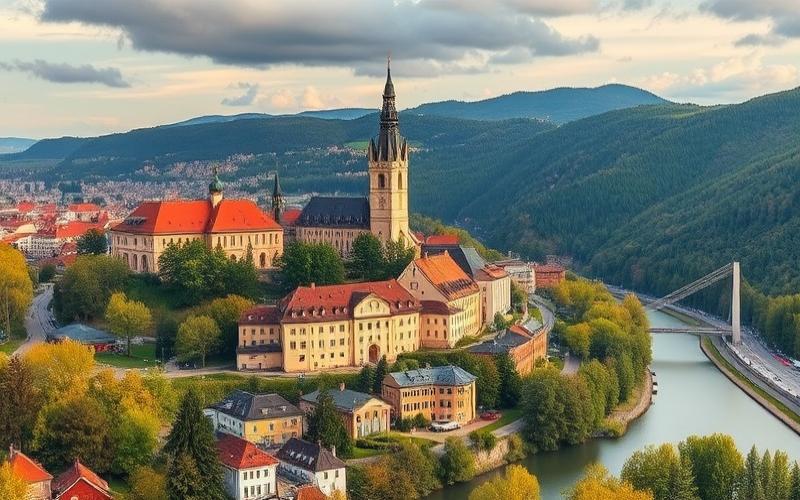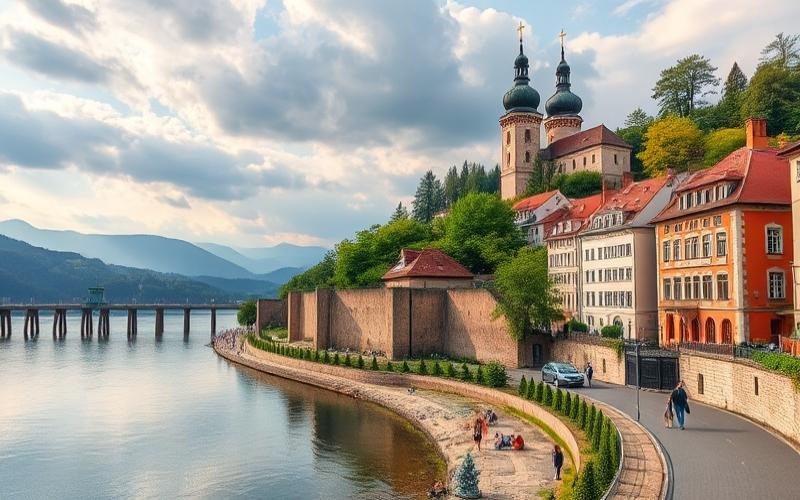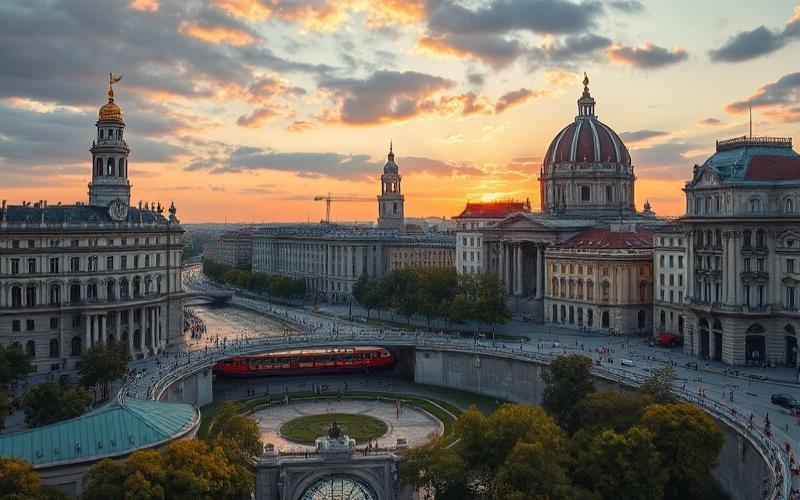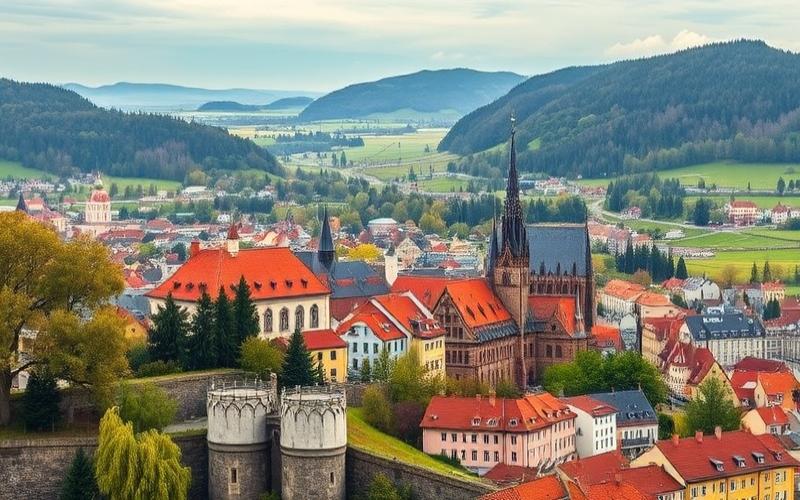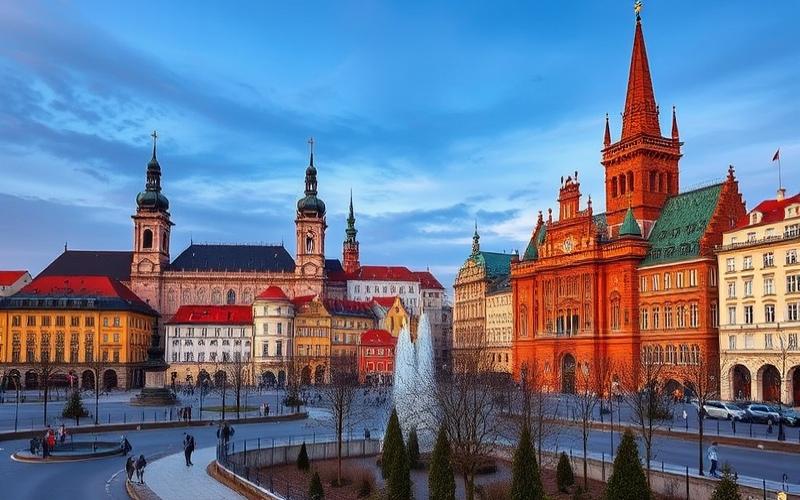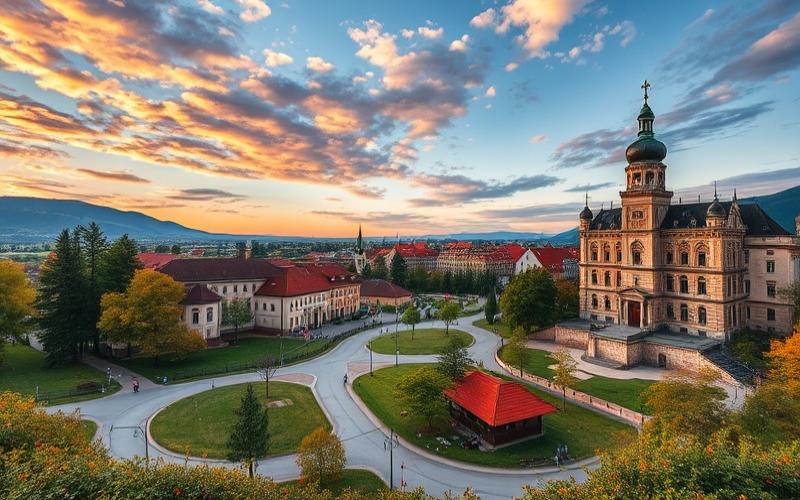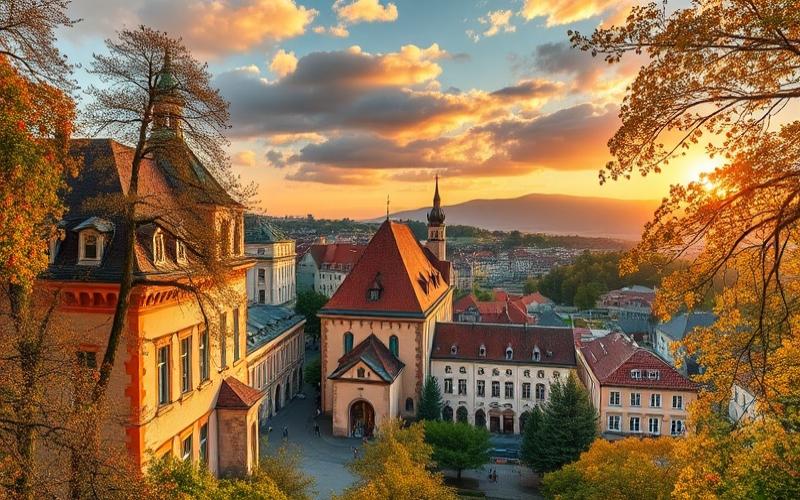
 Published on and written by Cyril Jarnias
Published on and written by Cyril Jarnias
Poland, a country rich in centuries-old traditions and cultural heritage, offers a fascinating landscape for those seeking to deepen their understanding of local religious practices. For expatriates, integrating into this culture requires reflection on the importance of religious rituals that shape daily life.
From the vibrant celebration of Catholic holidays to more discreet spiritual practices, every aspect of Polish life is immersed in a deep history where religion plays a predominant role. Understanding these subtleties and engaging respectfully can enrich the experience of living in a country where faith and tradition blend harmoniously.
Impact of Religious Practices on Daily Life in Poland
Religious practices profoundly influence daily routines in Poland, both in the private sphere and in social and professional life.
Religious days, particularly Sunday and major Christian holidays, structure the week and year for the majority of Poles.
Concrete Examples of Impact on Daily Life:
- Store Closures on Sundays
Since 2018, most stores have been closed on Sundays, with limited exceptions (gas stations, small owner-operated grocery stores). This measure aims to respect the sacred nature of Sunday in Catholic tradition and to prioritize family life and participation in Mass. - Religious Holidays
Several Christian holidays are national holidays, where professional activity almost completely stops:
- Christmas (December 25-26)
- Easter (Sunday and Monday)
- All Saints’ Day (November 1)
- Assumption (August 15)
- Corpus Christi (variable date)
These days are opportunities for collective religious celebrations, family gatherings, and specific traditions.
- Religious Services
Attendance at Sunday Mass remains a social norm, especially in rural areas and among older generations. Church bells mark the day, particularly at noon and in the evening, reminding people of prayer times. As major holidays approach, processions, pilgrimages, and special services are organized, mobilizing the entire community. - Culinary Norms and Dietary Restrictions
- During Lent, many Poles abstain from meat on Fridays and favor dishes based on fish, vegetables, or grains.
- Traditional Christmas and Easter menus follow religious prescriptions: for example, the Christmas Eve meal (Wigilia) is meatless and composed of symbolic dishes.
- Some families still practice fasting on the eve of religious holidays.
Summary Table of Major Religious Days and Their Impact:
| Holiday | Date | Impact on Routine | Main Tradition |
|---|---|---|---|
| Sunday | Weekly | Store closures | Mass, family meal |
| Christmas | December 25-26 | Holiday, activity stoppage | Meatless Christmas Eve dinner, sharing of wafer |
| Easter | Variable date | Holiday, important services | Blessing of food baskets, processions |
| All Saints’ Day | November 1 | Holiday, cemetery visits | Candles on graves |
| Assumption | August 15 | Holiday, Marian processions | Mass, blessing of herbs |
| Corpus Christi | Variable date | Holiday, processions | Flower carpets, adoration |
Integration and Adaptation for Expatriates
- Learn about the holiday calendar and anticipate store closures.
- Respect dietary customs when invited (for example, not offering meat on a Lenten Friday).
- Participating in some local celebrations, even as an observer, promotes integration and understanding of local values.
- Adopt a respectful attitude during processions or public religious events.
Diversity of Practices and Regional Differences
- Although Catholicism remains largely predominant, religious minorities exist: Orthodox Church (mainly in the east of the country), Protestants, Old Believers, and a small Jewish community.
- Practices vary between cities and countryside: rural areas often preserve more vibrant traditions, while major cities see increasing secularization, especially among younger generations.
- Some regions, like Galicia or Masuria, bear witness to a mixed religious heritage, where Catholic, Orthodox, and Lutheran influences coexist.
- Jewish holidays, although less visible, structure the community life of the few Jewish families, particularly in Warsaw and Krakow.
Key Takeaway:
Religion shapes the social, culinary, and professional rhythm in Poland, but the diversity of practices and their rapid evolution, especially among urban youth, create a mosaic of behaviors where tradition and modernity coexist.
Good to Know:
In Poland, the influence of Catholicism is manifested by the closure of stores on Sundays and religious holidays, while practices like consuming herring during Lent illustrate culinary norms; expatriates can adapt by respecting these traditions and participating in local festivities, but it is crucial to note the variations between regions and different religious communities.
Major Religious Holidays and Their Cultural Significance
Christmas (Boże Narodzenie)
The Christmas celebration begins on December 24 with Wigilia, a family meal where the Oplatek is shared, a thin communion wafer symbolizing peace and forgiveness. This dinner, traditionally meatless, includes twelve typical dishes such as beet soup (barszcz), dumplings (pierogi), fish, and various desserts. An extra place setting is often set for an unexpected guest, a symbol of hospitality.
After the meal, gifts are exchanged and many attend Midnight Mass (Pasterka). December 25 and 26 are also holidays, marked by family visits and continued festivities. House decorations and Christmas markets are omnipresent, and on December 6, Saint Nicholas brings gifts to children.
Christmas traditions strengthen family bonds and community spirit, while perpetuating values of mutual aid and generosity.
Easter (Wielkanoc)
The Easter celebration begins with the blessing of palms on the Sunday before the holiday, followed by a period of fasting and reflection. On Saturday, families bring baskets (święconka) to the church filled with symbolic foods (eggs, cold cuts, bread, salt, cakes) that will be consumed the next day.
On Easter Sunday, Christ’s resurrection is celebrated with a grand Mass and a family feast featuring eggs, symbols of life and renewal. Easter Monday, called Śmigus-dyngus, is famous for the tradition of sprinkling water on loved ones, a sign of purification and joy.
These rites, blending Christian elements and pagan customs, express renewal and family cohesion, while promoting intergenerational gathering.
All Saints’ Day (Wszystkich Świętych)
All Saints’ Day, on November 1, is a day of reflection during which Poles visit cemeteries to honor their deceased. Graves are decorated with flowers and candles, illuminating the cemeteries and creating an atmosphere of collective remembrance.
This holiday is essential for family memory and social solidarity, as it brings the community together around respect for ancestors and mutual support.
St. John’s Night (Noc Świętojańska)
Noc Świętojańska, celebrated during the summer solstice, has its origins in Slavic pagan traditions, fused with Christian elements. Festivities include lighting bonfires, dancing, making and floating flower wreaths on rivers, and rituals related to searching for the “fern flower,” a symbol of happiness and prosperity.
This event is particularly popular among young people and promotes social cohesion through collective outdoor celebrations, often accompanied by music and performances.
Table of Major Catholic Religious Holidays in Poland
| Holiday | Date | Main Rituals | Cultural Significance |
|---|---|---|---|
| Christmas | December 24-26 | Wigilia, Oplatek, Midnight Mass | Family, generosity, solidarity |
| Easter | Variable (March/April) | Święconka, Mass, Śmigus-dyngus | Renewal, family gathering |
| All Saints’ Day | November 1 | Grave visits, candles, flowers | Memory, respect, social cohesion |
| St. John’s Night | June 23-24 | Bonfires, wreaths, dances, rituals | Community, tradition, youth |
Cultural Influences and Contemporary Evolutions
- Globalization has introduced foreign elements, such as Western-style decorated Christmas trees and Halloween, but these influences remain limited compared to the persistence of local traditions.
- Expatriates can observe strong family and community involvement, even in large cities, where Christmas markets and religious processions remain very popular.
- Media and social networks participate in redefining celebrations, emphasizing the festive and social aspect, while maintaining essential religious rites.
- An emerging trend is the simplification of certain rituals to adapt to urban lifestyles, while preserving the deep meaning of the holidays and the central role of the family.
List of Essential Traditions at Christmas and Easter in Poland
- Sharing the Oplatek and meatless meal during Wigilia
- Blessing of Easter baskets (święconka)
- Decorating graves on All Saints’ Day
- Water sprinkling on Easter Monday (Śmigus-dyngus)
- Flower wreaths and bonfires during Noc Świętojańska
For Expatriates
Integration into Polish society involves participating in these holidays, which are unique opportunities to discover the richness of the heritage, build connections, and better understand the centrality of family and community in Polish culture.
Good to Know:
In Poland, Christmas is celebrated with a traditional dinner on Christmas Eve, called Wigilia, where 12 symbolic dishes are served without meat, while at Easter, families gather to bless food baskets (Święconka) on Holy Saturday. All Saints’ Day sees passionate visits to cemeteries to honor the deceased with candles and flowers, and St. John’s Night incorporates elements of Slavic folklore with bonfires and dances around the night of June 23.
Behavioral Codes and Adaptations for Expatriates
Poland is a country where Catholicism remains the predominant religion, with approximately 71% of the population declaring themselves Catholic according to the 2021 census. Historically, the Catholic religion has been a pillar of national identity, particularly during periods of occupation and partitions, and it continues to influence daily life and social interactions.
Influence of Catholicism on Daily Life and Social Interactions
- Participation in Sunday Mass remains high, although the rate of religious practice is declining, especially among young people.
- Major religious holidays like Easter, Christmas, and associated holidays structure social and family life.
- Discussions about faith, religious traditions, and the place of the Church can be frequent in social circles, particularly in rural areas.
Expected Behaviors During Religious Events for Expatriates
- Respect the solemnity of religious holidays: avoid planning secular or festive events during major celebrations.
- Refrain from public criticism of local religious practices, out of respect for the ambient sensitivity.
- Be mindful of the importance of reflection and family during major religious events.
Tips for Respectfully Attending Religious Services
| Tip | Detail |
|---|---|
| Dress Code | Wear modest and covering clothing (shoulders and knees covered for everyone). |
| Behavior | Arrive on time, avoid talking or using your cell phone. |
| Participation | Stand, sit, or kneel following others; do not take communion if not Catholic. |
| Gestures | Follow the gestures of the faithful (sign of the cross, discreet greetings). |
Importance of Religious Traditions and Impact on Eating Habits
- Easter Sunday: traditional family meal, exchange of blessed eggs.
- Good Friday: day of fasting and abstinence from meat, which can influence food offerings in restaurants or cafeterias; expatriates are recommended to adapt or respect these restrictions in public places.
- Christmas: Christmas Eve (Wigilia) is characterized by a meatless meal and a very family-oriented atmosphere.
Adaptations for Expatriates from Different Religious Backgrounds
- Be discreet about one’s own beliefs or practices, especially in more traditional settings.
- Learn about the religious holiday calendar to plan personal and professional activities.
- Take part, if invited, in religious or family celebrations, adopting an attitude of respectful observation.
- Temporarily adapt eating habits during major holidays, especially during fasting periods, to facilitate integration.
Practical Tips for Harmonious Integration
- Ask colleagues or neighbors about local customs.
- Politely ask for explanations about traditions if needed, as benevolent curiosity is generally appreciated.
- Adopt an open and respectful attitude towards the diversity of religious practices within the country, while remaining faithful to one’s own convictions discreetly.
To Remember
Open-mindedness, discretion, and respect for local religious practices are essential for living peacefully in Poland and building strong social bonds.
Good to Know:
In Poland, Catholicism influences social interactions, and during religious events like Easter, expatriates are expected to respect the dress code for services and adapt their eating habits during the Good Friday fast, while integrating local traditions such as the Easter Sunday family gathering.
Religious Freedom and Resources for Practicing Your Religion in Poland
Religious freedom in Poland is guaranteed by the Constitution, which affirms the equality of faiths and the impartiality of the State towards all religious or philosophical convictions. The Constitution also establishes the principle of separation and mutual autonomy between the State and Churches, while providing for forms of cooperation for the common good. No belief is officially favored, but religion can be expressed publicly.
Current Laws and Regulations
- Freedom of conscience and religion is explicitly protected.
- All Churches and religious communities are theoretically on equal footing.
- Religious education can be offered in public schools, subject to a legal agreement between the State and the concerned Churches.
- The State guarantees respect for the autonomy of religious communities in their internal affairs.
Relations Between the Government and Religious Communities
- The Catholic Church holds a predominant place in Polish society and national history.
- Recent political initiatives aim to clarify and sometimes limit the influence of the Catholic Church, notably through audits on public funding and reducing the place of catechism in public schools.
- The former government (PiS) often mobilized religious references in its policies, particularly on societal and educational issues, which sparked debates on secularism and the separation of powers.
- The new government displays a willingness to strengthen the separation between the State and Churches, while maintaining dialogue.
Predominant Religions and Minorities
| Religion | Estimated Share of Population | Status and Visibility in Society |
|---|---|---|
| Catholicism | Approximately 87% | Majority religion, very strong influence |
| Orthodox Church | Approximately 1.3% | Present mainly in the east of the country |
| Protestantism | Less than 1% | Mainly Lutherans, discreet presence |
| Judaism | Very small minority | Active communities, official recognition |
| Islam | Very small minority | Small communities, a few mosques |
| Others (Buddhism, Hinduism, etc.) | Marginal | Freedom of worship guaranteed, low visibility |
Religious minorities have recognized legal statuses, their own associations, and can benefit from public funding for their activities.
Religious Infrastructure
- Places of Worship: Very numerous for the Catholic Church (several thousand parishes), presence of Orthodox churches, restored synagogues, mosques in major cities, and prayer rooms for other communities.
- Religious Schools: Many private Catholic institutions, existing Jewish and Muslim schools, possibility for each community to create its own educational structures.
- Events and Holidays: Major Christian holidays (Christmas, Easter, All Saints’ Day) are holidays and widely celebrated. Holidays of other religions are recognized within the community framework and sometimes celebrated publicly, particularly in major cities hosting expatriates.
Resources and Support for Expatriates
- Interfaith support associations and mutual aid groups in main cities (Warsaw, Krakow, Wrocław, Gdańsk).
- Embassies, cultural centers, and NGOs provide contacts for expatriates wishing to practice their religion.
- Many groups on social networks, local forums, or institutional websites list places of worship and active associations for each denomination.
- Translation services and legal assistance for the recognition of religious associations.
Regional Differences in Terms of Tolerance
- Major cities are more open to religious diversity, with a varied offering of places of worship and interfaith events.
- Rural regions and the east of the country remain more homogeneous and conservative, with a near-exclusive predominance of Catholicism.
- The visibility of minorities and the degree of acceptance can vary: more openness in Warsaw, Krakow, or Poznań than in Podlachia or areas with strong Catholic tradition.
Key Takeaway
Religious freedom is a fundamental right in Poland, but actual practice varies by region and the historical importance of Catholicism remains very strong. Expatriates benefit from a strong associative network in major cities for all recognized faiths.
Good to Know:
In Poland, the Constitution guarantees religious freedom, although the Catholic Church predominates; synagogues, mosques, and Hindu temples are available mainly in large cities, with associations like the Association of Muslim Communities offering support and resources. Although generally accepted, religious minorities may encounter varying attitudes depending on the region, especially in rural areas.
Disclaimer: The information provided on this website is for informational purposes only and does not constitute financial, legal, or professional advice. We encourage you to consult qualified experts before making any investment, real estate, or expatriation decisions. Although we strive to maintain up-to-date and accurate information, we do not guarantee the completeness, accuracy, or timeliness of the proposed content. As investment and expatriation involve risks, we disclaim any liability for potential losses or damages arising from the use of this site. Your use of this site confirms your acceptance of these terms and your understanding of the associated risks.

